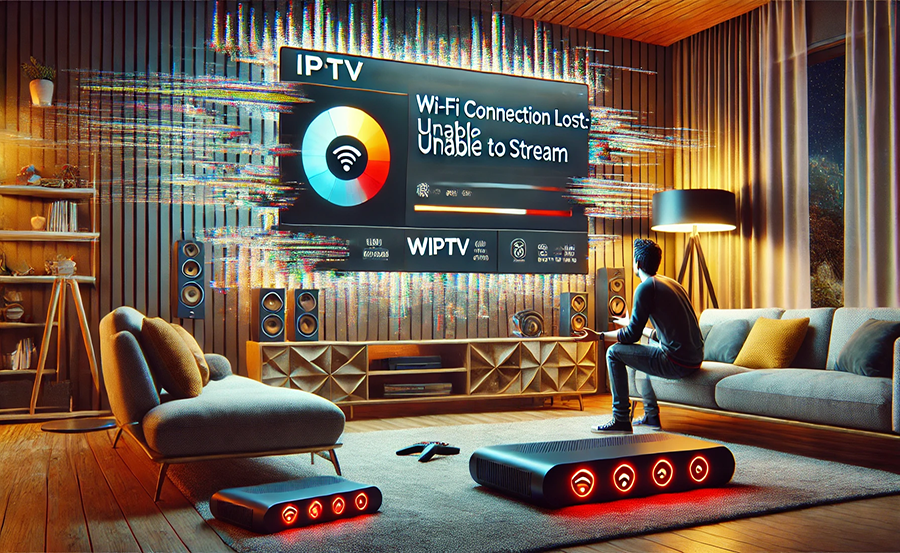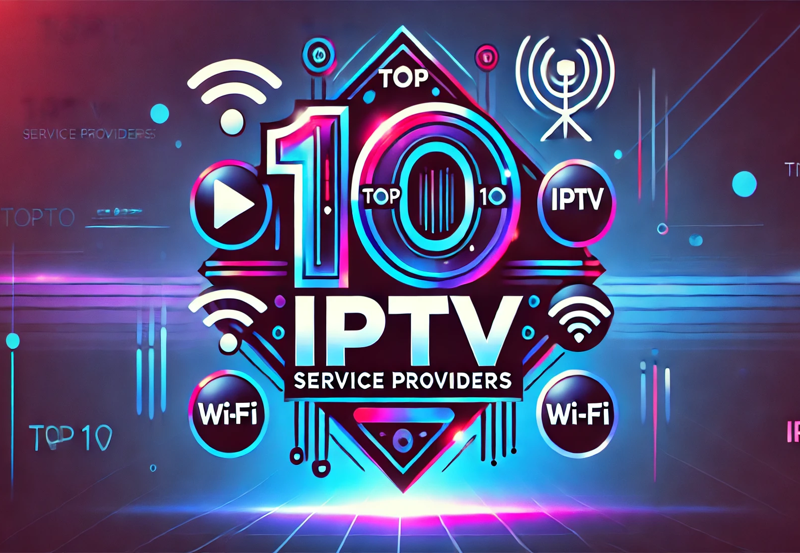Understanding IPTV Network Latency: Challenges and Remedies
In today’s digital age, the demand for high-quality streaming services has skyrocketed, transforming the way we consume entertainment. As more users switch to IPTV services for their streaming needs, issues like network latency become increasingly significant. Network latency can affect your viewing experience, causing delays that are both frustrating and disruptive. This article aims to explore the intricacies of IPTV network latency, identify its causes, and offer viable solutions to enhance your streaming delight.
What is IPTV Network Latency?
IPTV network latency refers to the delay between a data request and its delivery over the internet. Essentially, it’s the time taken for content to travel from the server to your screen. Although a few milliseconds might seem trivial, they can compound into noticeable lags, especially with high-demand content.
Factors Influencing Latency in IPTV Services
Several factors affect IPTV network latency, each contributing to the overall delay. Understanding these can help in mitigating their impact.
Bandwidth Availability
Bandwidth plays a critical role in determining the quality of your IPTV service for firestick or other devices. More bandwidth allows for faster data transmission, minimizing latency. Conversely, limited bandwidth can throttle streaming speeds and increase delays. Buy 1 Year IPTV and Enjoy Unlimited Content
Network Congestion
During peak times, network congestion can significantly escalate latency issues. High traffic on internet service provider networks can slow data flow, leading to buffering and lower streaming quality.
Hardware Limitations
Your hardware, including routers and streaming devices, can also impact latency. Older equipment may not support high-speed data processing, leading to further delays.
Identifying Causes of High Latency
Once you understand the contributing factors, the next step is identifying the specific causes of high latency in your IPTV setup. Doing so requires a closer analysis of your network configuration and streaming habits.
Analyzing Network Traffic
It’s essential to monitor network traffic to identify bottlenecks. Tools like network analyzers can help visualize data flow, allowing users to pinpoint congestion points.
Investigating Service Quality
Your IPTV subscription plans may offer varying levels of service quality. Check your plan features and consider upgrading if your current package does not meet your streaming needs.
Effective Solutions for Reducing Latency
Fortunately, there are several strategies you can employ to minimize IPTV network latency and enhance your streaming experience.
Optimizing Your Equipment
Upgrading routers and streaming devices can make a significant difference. Look for equipment compatible with the latest internet standards for better performance.
- Invest in a high-speed router
- Consider streaming devices with ample processing power
- Use Ethernet connections instead of Wi-Fi when possible
Improving Network Management
Implementing practices to manage network traffic can also help. Simple changes in your home network setup may lead to marked improvements.
- Limit the number of devices connected simultaneously
- Set up Quality of Service (QoS) settings on your router
- Schedule updates and heavy downloads during off-peak hours
Engaging with Internet Service Providers
If latency issues persist, engaging with your ISP is advisable. They may be able to provide solutions tailored to high-demand users. Start by checking if there are higher-tier plans available that cater specifically to streaming needs.
A Glimpse into the Future of IPTV Latency Management
As technologies evolve, the future of IPTV looks promising. Innovations in network infrastructure promise faster speeds and better reliability for users worldwide. Among the advances, 5G technology and improvements in fiber optic installations are set to dramatically reduce network latency, optimizing streaming experiences across various platforms.
Embracing Technological Advances
The rise of 5G networks is a game-changer, offering minimal latency and robust connections. As more areas become 5G-capable, the constraints of current network issues will lessen significantly, boosting efficiency and streaming quality.
FAQs on IPTV Network Latency

What are the common symptoms of high latency in IPTV?
Common symptoms include buffering, delay in video playback, and lower video quality. These can disrupt the viewing experience and often indicate the need for network optimization.
Can a VPN help with reducing IPTV latency?
In some cases, a VPN can improve latency if the direct route to the server is congested. However, it can also add extra load to the connection. Testing both scenarios is advised.
How do IPTV subscription plans influence latency?
Higher-tier subscription plans often include better support for high-speed streaming, which can alleviate latency by prioritizing service quality and network availability.
What specific equipment upgrades are recommended to reduce latency?
Invest in modern routers with high throughput and dual-band capabilities. Streaming devices with robust CPU and memory specifications are also favorable.
Is latency the only factor affecting streaming quality?
While significant, latency is one of several factors. Others include packet loss, streaming service limitations, and hardware capabilities, all of which contribute to overall streaming performance.
Will future technological developments impact IPTV latency?
Yes, as network technologies improve, latency issues are expected to reduce. Innovations like 5G and enhancements in fiber optic networks promise improved streaming experiences.
Lazy IPTV Cheat Sheet: Quick and Easy Setup Tips





